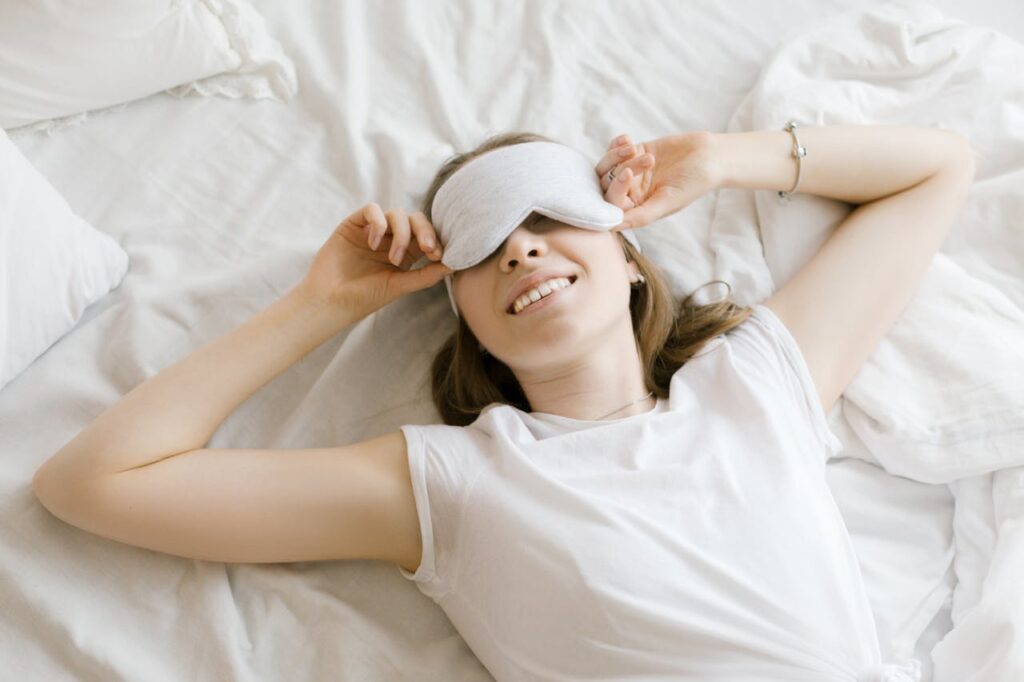In our fast-paced world, sleep often takes a backseat to the demands of work, family, and social obligations. However, the importance of quality sleep cannot be overstated. Sleep is a critical component of physical and mental health, influencing everything from cognitive function to immune system efficiency. Sleep hygiene refers to the practices and habits that contribute to a restful and uninterrupted night’s sleep. In this article, we’ll explore how adopting better sleep hygiene can dramatically improve both your physical and mental well-being.
1. What is Sleep Hygiene?
Sleep hygiene encompasses a variety of practices that are essential for ensuring good quality sleep. These include establishing a consistent sleep schedule, creating a relaxing bedtime routine, optimizing your sleep environment, and avoiding activities that can disrupt sleep, such as consuming caffeine late in the day or using electronic devices before bed.
Good sleep hygiene promotes healthy sleep patterns, making it easier to fall asleep, stay asleep, and wake up feeling rested. It’s not just about getting enough hours of sleep, but also about the quality of that sleep. Without proper sleep hygiene, many people struggle with insomnia, poor-quality sleep, or irregular sleep cycles, which can have significant consequences for both physical and mental health.
2. The Impact of Sleep on Physical Health
A good night’s sleep is essential for the body’s physical health. Here are some key ways sleep affects the body:
- Immune System Support: Sleep is a time for the body to repair and regenerate. During deep sleep, the immune system produces cytokines, proteins that help the body fight infection, inflammation, and stress. Lack of sleep can weaken the immune system, making you more susceptible to illness and infections, and slowing down recovery times.
- Heart Health: Sleep plays a crucial role in maintaining cardiovascular health. Poor sleep hygiene, especially chronic sleep deprivation, has been linked to an increased risk of heart disease, high blood pressure, and stroke. Sleep helps regulate stress hormones and inflammatory processes that are key to keeping the heart and blood vessels healthy.
- Weight Management: Sleep influences the balance of hormones that affect hunger and appetite, such as ghrelin and leptin. Poor sleep can lead to increased hunger and cravings for high-calorie foods, contributing to weight gain. Inadequate sleep has also been linked to a slower metabolism and decreased energy levels, making it harder to maintain a healthy weight.
- Improved Physical Performance: Sleep is essential for muscle recovery and growth. For athletes or those who engage in regular exercise, proper sleep hygiene is crucial for peak performance. Sleep deprivation can lead to reduced endurance, slower reaction times, and impaired coordination.
3. The Role of Sleep in Mental Health
The link between sleep and mental health is profound. Good sleep hygiene can significantly improve emotional well-being and cognitive function. Here’s how:
- Cognitive Function and Memory: Sleep is vital for brain function. During sleep, the brain processes and consolidates memories, making it easier to retain new information and skills learned throughout the day. Poor sleep can lead to impaired attention, decision-making, and problem-solving abilities, as well as difficulty concentrating and remembering important information.
- Mood Regulation: Sleep plays an essential role in emotional regulation. Lack of sleep can lead to increased irritability, anxiety, and stress. Over time, chronic sleep deprivation can contribute to the development of mental health disorders, including depression and anxiety. On the flip side, improving sleep hygiene can help regulate mood, reduce stress, and enhance overall emotional resilience.
- Reduced Risk of Mental Health Disorders: There is a strong link between sleep and mental health conditions. Poor sleep hygiene is both a symptom and a contributing factor to conditions such as anxiety, depression, and bipolar disorder. Conversely, improving sleep quality can often help alleviate the symptoms of these disorders and improve overall mental well-being.
4. Simple Sleep Hygiene Practices for Better Health
Improving your sleep hygiene doesn’t require drastic changes; simple adjustments to your routine can lead to significant improvements in sleep quality. Here are some practical tips to enhance sleep hygiene:
- Establish a Consistent Sleep Schedule: Going to bed and waking up at the same time every day, even on weekends, helps regulate your body’s internal clock (circadian rhythm). This makes it easier to fall asleep and wake up feeling refreshed.
- Create a Relaxing Bedtime Routine: Engage in relaxing activities before bed, such as reading, taking a warm bath, or practicing mindfulness meditation. Avoid stimulating activities, such as watching TV, working, or using electronic devices, at least an hour before bedtime, as the blue light from screens can disrupt your body’s production of melatonin, a hormone that regulates sleep.
- Optimize Your Sleep Environment: Your bedroom should be a sleep-friendly environment. Make sure your room is dark, quiet, and cool. Consider using blackout curtains, earplugs, or a white noise machine to block out any disturbances. Invest in a comfortable mattress and pillows to support restful sleep.
- Be Mindful of Your Diet and Caffeine Intake: What you eat and drink can significantly impact your sleep. Avoid large meals, caffeine, and alcohol close to bedtime. While alcohol may help you fall asleep initially, it can disrupt sleep cycles and reduce sleep quality.
- Exercise Regularly: Regular physical activity can promote better sleep by reducing stress and anxiety levels. However, try to avoid vigorous exercise right before bedtime, as it can increase energy levels and make it harder to fall asleep.
- Limit Naps: While short naps can be refreshing, long or irregular naps during the day can interfere with nighttime sleep. If you need to nap, keep it under 30 minutes and try to nap earlier in the day.
5. How Better Sleep Can Transform Your Life
By improving your sleep hygiene, you can experience a host of benefits that positively impact both your physical and mental health. Here’s how better sleep can transform your life:
- Increased Energy and Productivity: Quality sleep gives you more energy, enhances focus, and improves your ability to complete tasks efficiently. You’ll wake up feeling refreshed and ready to tackle the day.
- Enhanced Emotional Well-being: Better sleep leads to improved emotional regulation, reduced stress, and greater resilience to daily challenges. You’ll likely experience fewer mood swings and feel more balanced and at ease.
- Improved Overall Health: Good sleep hygiene reduces the risk of developing chronic conditions like heart disease, diabetes, and mental health disorders. Your immune system will function optimally, and your body will be better equipped to heal and recover.
Conclusion
Sleep hygiene is a critical aspect of maintaining both physical and mental health. By adopting simple practices that promote better sleep, such as establishing a consistent sleep schedule, creating a relaxing bedtime routine, and optimizing your sleep environment, you can significantly improve your overall well-being. Good quality sleep boosts cognitive function, enhances mood, supports the immune system, and contributes to long-term health. Investing in better sleep is investing in a healthier, happier life.

